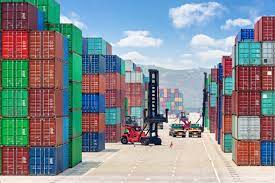Understanding Pre-Shipment Inspection Requirements in Saudi Arabia
Pre-shipment inspection requirements in Saudi Arabia are an essential aspect of the import process for goods entering the country. Understanding these requirements is crucial for businesses looking to export to Saudi Arabia. This article aims to provide a comprehensive insight into the pre-shipment inspection requirements in Saudi Arabia, outlining pre shipment inspection Jeddah the necessary steps and regulations that must be followed to ensure compliance with the country's import laws. By familiarizing oneself with these requirements, businesses can streamline their export process and mitigate the risk of delays or rejections at the border.
Pre-shipment inspection requirements in Saudi Arabia are implemented to ensure that imported goods comply with the country's regulations and quality standards. The inspection process involves examining the quality, quantity, and specifications of the products before they are shipped to Saudi Arabia. The Saudi Standards, Metrology and Quality Organization (SASO) is the regulatory body responsible for overseeing the pre-shipment inspection requirements in the country. SASO has established specific guidelines for different products, and importers are required to obtain a Certificate of Conformity (CoC) for their goods to demonstrate compliance with these regulations. The pre-shipment inspection is typically conducted by accredited inspection agencies, which are approved by SASO. These agencies verify that the products meet the relevant technical regulations and standards, as well pre shipment inspection Services as labeling and packaging requirements, before they are allowed to enter the Saudi market. Importers are advised to familiarize themselves with the specific requirements for their products and ensure that they comply with SASO standards to avoid any delays or rejections at the port of entry. Failure to meet these requirements may result in the refusal of entry for the goods or costly delays and additional expenses. Overall, understanding the pre-shipment inspection requirements in Saudi Arabia is crucial for importers to ensure a smooth and compliant importation process. It is important to stay informed about any updates or changes to the regulations to avoid any compliance issues.
Understanding the Pre-Shipment Inspection Process in Saudi Arabia

Pre-shipment inspection in Saudi Arabia involves a rigorous process to ensure that imported goods conform to the country's standards and regulations. The inspection is carried out by accredited third-party inspection agencies to verify the quantity, quality, and adherence to technical specifications of the products. The process aims to mitigate the risk of substandard or non-compliant goods entering the Saudi market, protecting consumer safety and the interests of local industries. Inspection criteria are determined by the Saudi Standards, Metrology and Quality Organization (SASO) and may vary depending on the type best pre shipment inspection company in Saudi Arabia of product. Non-compliance with pre-shipment inspection requirements can result in rejection of the goods at the port of entry or fines for the importer. It is crucial for importers to familiarize themselves with the inspection process and ensure compliance to avoid potential disruptions to their supply chain.
Key Criteria for Pre-Shipment Inspections in Saudi Arabia

Key criteria for pre-shipment inspections in Saudi Arabia may include checking the quality and quantity of the goods, as well as ensuring compliance with Saudi Arabian regulations and standards. Inspectors will also assess the packaging and labeling of the goods to ensure they meet the required specifications for importation into the country. Additionally, they may inspect the documentation related to the shipment to verify its accuracy and completeness. Other criteria may include checking for any potential safety hazards or environmental concerns related to the shipment. Overall, the goal of pre-shipment inspections in Saudi Arabia is to ensure that imported goods meet the necessary requirements and do not pose any risks to consumers or the environment.
Navigating the Pre-Shipment Inspection Requirements in Saudi Arabia

Navigating the pre-shipment inspection requirements in Saudi Arabia can be complex and challenging, as the country has stringent regulations in place to ensure the quality and safety of imported goods. It is essential for exporters to familiarize themselves with the specific requirements for their products and to work closely with a qualified inspection agency to ensure compliance. Additionally, understanding the documentation and procedures involved in the pre-shipment inspection process is crucial for a smooth and successful export experience. It is recommended to seek expert advice and guidance from professionals with experience in Saudi Arabian import regulations to navigate the pre-shipment inspection requirements effectively.
Ensuring Compliance with Pre-Shipment Inspection Guidelines in Saudi Arabia
In Saudi Arabia, companies must ensure compliance with pre-shipment inspection guidelines to meet the country's import requirements. These guidelines are designed to verify the quality, quantity, and value of goods being imported and to ensure they comply with Saudi Arabian technical regulations and standards. The Saudi Standards, Metrology, and Quality Organization (SASO) is the authority responsible for setting and enforcing these guidelines. Companies must arrange for their goods to be inspected by an authorized inspection agency before shipment to Saudi Arabia. The inspection certificate issued by the agency is a mandatory document for customs clearance. Failure to comply with the pre-shipment inspection guidelines can result in delayed or rejected shipments, fines, or other penalties. Therefore, it is essential for companies to familiarize themselves with the specific requirements and ensure that their products meet the necessary standards before exporting to Saudi Arabia.
The Importance of Pre-Shipment Inspections for Saudi Arabian Imports
Pre-Shipment Inspection Report in Saudi Arabia: Ensuring Quality Compliance
Pre-shipment inspections are crucial for Saudi Arabian imports to ensure that the products meet the necessary quality and safety standards. These inspections help to identify any potential issues with the products before they are shipped, ultimately saving time and money for both the importer and exporter. In Saudi Arabia, pre-shipment inspections are often required for certain products to comply with customs regulations and ensure consumer safety. Additionally, these inspections help to prevent fraudulent or substandard goods from entering the country, ultimately protecting consumers and businesses. Overall, pre-shipment inspections play a vital role in maintaining the quality and integrity of imports into Saudi Arabia.
Streamlining the Pre-Shipment Inspection Process for Saudi Arabia
Streamlining the pre-shipment inspection process for Saudi Arabia involves implementing efficient and standardized procedures to ensure that imported goods comply with the country's regulations and standards. This can include establishing clear guidelines for inspection criteria, documentation requirements, and scheduling inspections in a timely manner. Utilizing digital platforms for submitting inspection requests and reports can also help to streamline the process and reduce paperwork. Additionally, collaborating with accredited inspection agencies and providing training for customs officials can help to improve the efficiency and effectiveness of the pre-shipment inspection process.
Meeting Pre-Shipment Inspection Standards for Imports into Saudi Arabia
Meeting pre-shipment inspection standards for imports into Saudi Arabia is crucial for ensuring that imported goods meet the quality and safety requirements set by the Saudi Arabian Standards Organization (SASO). Importers are required to adhere to the SASO’s technical regulations and standards, which cover a wide range of products including electrical appliances, cosmetics, food, and industrial equipment. These standards help to protect the health and safety of consumers in Saudi Arabia and ensure that imported goods comply with the country’s import regulations. Additionally, meeting pre-shipment inspection standards can help to expedite customs clearance and prevent delays in the importation process. It is important for importers to work with accredited inspection agencies to conduct pre-shipment inspections and obtain the necessary certificates of conformity before their goods are shipped to Saudi Arabia.